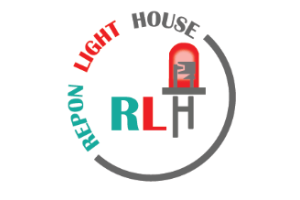Is Gambling Addictive Tips for Managing Your Habit

Is Gambling Addictive? Tips for Managing Your Habit
Gambling has been around for centuries, captivating individuals with the thrill of chance and the possibility of winning big. However, as exciting as it may be, many people often find themselves trapped in a cycle of addiction that can have devastating consequences. In this article, we will explore the question, “Is gambling addictive?” and provide practical tips for managing gambling habits. For more insights on responsible gambling, visit Is Gambling Addictive? Tips for Azerbaijani Players https://mostbet-saudi-arabia.com/.
The Nature of Gambling Addiction
Gambling addiction, also known as compulsive gambling or gambling disorder, is a condition characterized by an uncontrollable urge to gamble despite the negative consequences it may bring. It can affect anyone, regardless of their background, and can lead to financial ruin, strained relationships, and mental health disorders such as anxiety and depression.
Research suggests that about 1 to 2% of the population may be diagnosed with gambling disorder at some point in their lives. Various factors contribute to this addiction, including psychological, social, and environmental influences. Many individuals gamble to escape reality, cope with stress, or seek the excitement that comes with risking money or possessions.
Signs of Gambling Addiction
Recognizing the signs of gambling addiction is crucial for early intervention and treatment. Some common indicators include:
- Preoccupation with gambling, often thinking about past experiences or planning future bets.
- The need to gamble with increasing amounts of money to achieve the desired thrill.
- Irritability or restlessness when trying to cut down or stop gambling.
- Gambling as a way to escape problems or relieve feelings of anxiety or depression.
- Lying to family members or friends to conceal the extent of gambling activities.
- Feeling guilty or remorseful after gambling.
- Chasing losses, trying to win back money that has been lost in previous sessions.
If you or someone you know exhibits these signs, it’s essential to take action and seek help.

Tips for Managing Gambling Habits
If you enjoy gambling but want to keep it under control, here are some effective tips that can help you manage your gambling habits:
1. Set Limits
Before you start gambling, decide on a strict budget of how much money you can afford to spend. This should be an amount that won’t affect your daily life or finances. Stick to this limit, and never use borrowed money to gamble.
2. Time Management
Allocate a specific time frame for your gambling activities. Whether you’re playing poker, betting on sports, or spinning the slots, set a timer and stick to your schedule. This will help prevent you from losing track of time and overspending.
3. Self-Exclusion Programs
If you feel that you are losing control, consider enrolling in a self-exclusion program. Many casinos and online gambling platforms offer this option, which allows individuals to ban themselves from gambling venues for a specific period.
4. Seek Support

Talking to family and friends about your gambling habits can be a great way to gain support. You may also consider joining a support group such as Gamblers Anonymous, where you can connect with others facing similar challenges.
5. Avoid Triggers
Identify and avoid situations or environments that trigger your urge to gamble. This might mean avoiding places where people gamble, such as casinos or betting shops, and steering clear of friends who gamble excessively.
6. Find Alternatives
To reduce the time spent gambling, look for alternative activities that you can engage in. Pursue hobbies, engage in physical activities, or meet new people. Finding fulfilling activities can help divert your attention from gambling.
7. Educate Yourself
Understanding the risks associated with gambling is crucial. Take the time to learn about the odds, the house edge, and the nature of the games you play. This knowledge can prevent you from falling victim to false notions of easy winnings.
Conclusion
Gambling can be a fun and exciting pastime when approached responsibly. However, it is vital to recognize the potential for addiction and its consequences. By employing strategies like setting limits, seeking support, and educating oneself, individuals can enjoy gambling without falling into the trap of addiction. If you or someone you know is struggling with gambling, don’t hesitate to reach out for help.
Ultimately, the key to enjoying gambling while minimizing risks lies in striking a balance between fun and responsibility. Remember, the thrill of gambling should not overshadow the importance of maintaining control over your actions and finances.
